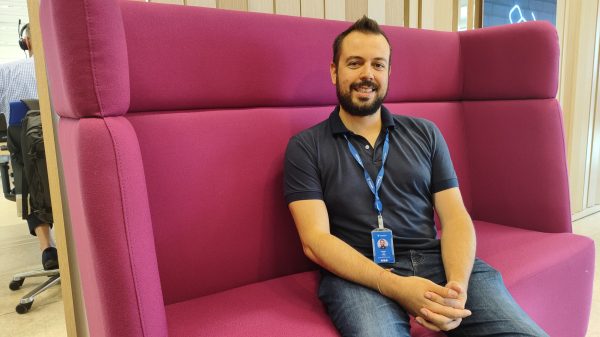Today, teamwork is essential for any business to succeed. But is it only now? The truth is that it has always been key, but new management models are putting more focus on soft skills to improve this. The shift from the traditional model, such as waterfall, to the Agile methodology focuses precisely on collaborating more.
Beyond simply working together, what really makes a team work well is the trust between its members. This trust not only creates a pleasant environment, but it is also the basis for achieving common goals, where each person contributes their best. Because when we trust that everyone will do their job well, there is no need to be on top of everyone all the time.
This not only improves efficiency, which is basic to any job, but also makes employees feel valued and respected. They know that their skills are recognised and that they have the freedom to make decisions in their area. Since the pandemic and with the arrival of new generations in the world of work, this is almost a requirement. The ABC of work.
The leader matters, but so does the team
Often, when we talk about leadership, we focus on the leader and his or her skills. But the team members are just as important. A successful team depends not only on a good leader, but also on members who are proactive, responsible and able to manage on their own. Members who trust their teammates and the manager are more willing to take risks, come up with new ideas and commit to the team’s goals.
Each member of a team brings unique skills and knowledge. Recognising and valuing these skills is fundamental to building trust. When employees feel that their talents are appreciated, they are more willing to give their best. In addition, recognising individual skills allows tasks to be assigned more effectively, ensuring that each person does what he or she does best, which improves efficiency and quality of work.
A key point of trust in teamwork is the ability to delegate tasks and give freedom to employees. Who hasn’t heard ‘I can do this better myself’? It is one of the most difficult skills to develop, but managers who trust their teams allow members to make decisions and manage their responsibilities with minimal intervention.
And all this does not work without two essential elements: open communication and transparency. This means not only sharing relevant and up-to-date information, but also being willing to listen to and consider everyone’s opinions and concerns. An environment where honest communication is encouraged helps avoid misunderstandings and strengthens the bonds between team members.
When everyone understands and is committed to the same goals, collaboration becomes more natural and effective. Trust that each member is working towards the same goal strengthens the sense of belonging and purpose, which is critical to the long-term success of the team and the company as a whole.
The best example of great teamwork
The story of The Snow Society is one of the best examples of great teamwork. Daniel Fernández Strauch, Eduardo Strauch and Nando Parrado, members of the Uruguayan rugby team Old Christians, survived one of the most famous plane crashes. On 13 October 1972, the team took a flight to Santiago de Chile that crashed in the Andes, leaving the survivors stranded in extreme conditions for 72 days.
In the aftermath of the crash, The Snow Society emerged, a group of 16 young people who managed to stay alive thanks to mutual trust and the effective distribution of tasks. And as they tell in Mejor Conectados, an initiative of Telefónica, the key to their survival was the work they did together.
Daniel Fernández Strauch says that teamwork was what gave them the strength to move forward: ‘We put together a superb team and that’s what saved us. Nando Parrado stresses the importance of trust: ‘Trust allowed for an effective distribution of tasks and critical decision-making. Eduardo Strauch also shares that cooperation and mutual faith were essential in dealing with despair and keeping spirits up.
Each member brought their unique skills to the table, creating a synergy that increased the chances of survival for all. This experience proved that, even in the most difficult circumstances, teamwork can lead us to overcome the unimaginable.









